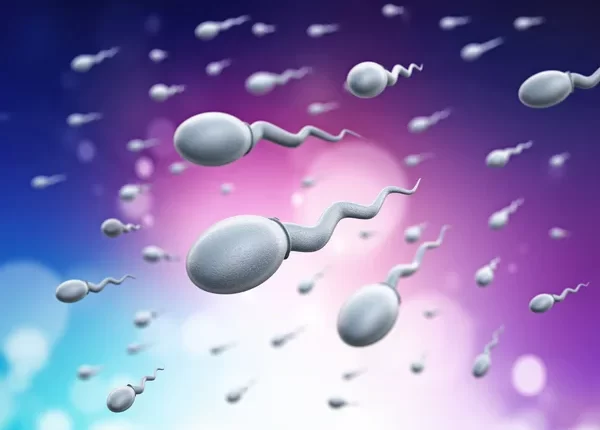Semen Microbiome May Influence Male Fertility, New Research Suggests – Male infertility, a growing concern affecting millions worldwide, often remains a mystery wrapped in a sperm cell. While traditional diagnostics shed light on physical parameters, the hidden world of the semen microbiome has emerged as a potential player in fertility’s complex dance. A recent study published in Scientific Reports delves into this fascinating realm, offering tantalizing clues about the microbial orchestra that might influence sperm health and ultimately, a man’s reproductive success.
While the overall bacterial community within the semen didn’t show stark differences between men with normal and abnormal sperm parameters, the researchers discovered a captivating plot twist. Specific microbes, like the infamous Lactobacillus iners, stepped into the spotlight. This bacterium, notorious for its presence in the vaginal microbiome and its potential link to female infertility, surprisingly appeared in significantly higher numbers in men with sluggish sperm, unable to navigate their journey towards the egg. Could L. iners be wielding its influence in the male reproductive arena as well? This finding begs for further investigation, potentially leading to novel therapeutic strategies targeting this microbial culprit.
The plot thickens as other bacterial characters take the stage. Peptoniphilus coxii, a bacterium with a penchant for sugar, seemed to prefer the company of men with lower sperm concentrations, hinting at a potential role in sperm production or survival. Meanwhile, members of the Pseudomonas genus, known for their environmental versatility, appeared to have a complex relationship with sperm morphology. Certain species, like Pseudomonas stutzeri and Paraburkholderia phenazinium, seemed to favor a more streamlined sperm shape, while Pseudomonas fluorescens preferred the company of less structurally perfect swimmers. These intricate relationships suggest that the semen microbiome might be a delicate ecosystem, where specific bacterial interactions could influence sperm quality and ultimately, fertility success.
Intriguingly, the study also revealed a fascinating tango between a man’s age, semen volume, sperm motility, and concentration, and the composition of his microbial orchestra. As age advanced, the bacterial community seemed to shift, potentially contributing to age-related fertility decline. Similarly, semen volume, sperm motility, and concentration all danced with the microbial composition, suggesting a complex interplay between these factors that could impact a man’s reproductive potential.
While the study doesn’t establish a definitive cause-and-effect relationship between the semen microbiome and male fertility, it paints a captivating picture of a hidden world teeming with possibilities. By understanding the role of these microbial players, researchers might unlock novel strategies to diagnose and potentially treat male infertility. From targeted probiotics to microbial manipulation techniques, the future of male fertility might lie in harnessing the power of the semen microbiome. This research serves as a crucial step towards unraveling the secrets of this hidden world, offering hope for millions struggling on the path to fatherhood.
Key findings
- Researchers explored the link between the microbiome of semen and changes in sperm parameters.
- While the overall bacterial community composition didn’t differ significantly between men with normal and abnormal sperm parameters, specific bacteria were associated with certain parameters.
- Lactobacillus iners was particularly abundant in men with abnormal sperm motility, suggesting its potential role in male fertility issues.
- Other bacteria, like Peptoniphilus coxii and Pseudomonas species, were also linked to specific sperm parameters.
- Age, semen volume, sperm motility, and concentration were all connected to the composition of bacteria in the semen.
Results:
- Overall, the microbiome composition wasn’t significantly different between men with normal and abnormal sperm parameters.
- However, specific bacteria were associated with certain parameters.
- Lactobacillus iners was notably more abundant in men with abnormal sperm motility, suggesting its potential negative impact on sperm movement.
- Other bacteria, like Peptoniphilus coxii and Pseudomonas species, were also linked to specific sperm parameters.
- The researchers also found that age, semen volume, sperm motility, and concentration were all associated with the composition of bacteria in the semen. Study source
ALSO READ: New Study Uncovers Hundreds of Chemicals Linked to Breast Cancer Risk










